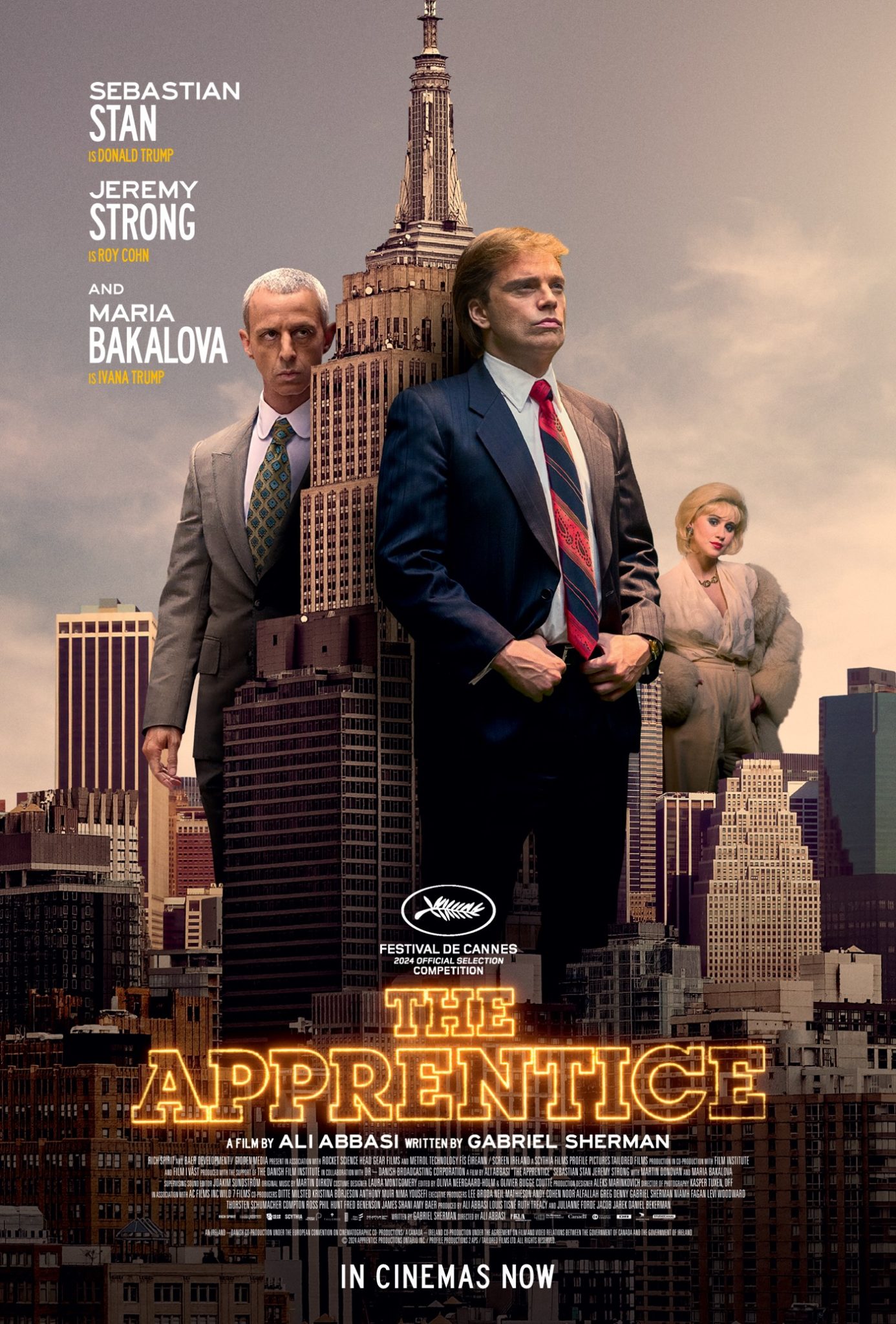- Film And TV
- 30 Oct 24

With Industry and The Apprentice thrilling audiences – well, apart from Trump-leaning ones – and an American Psycho reboot on the way, Roe McDermott wonders if we’ve regained our appetite for the Gordon Geckos and Jordan Belforts of this world.
Are you looking for a man in finance, 6’5, blue eyes? If you’re willing to believe some self-reporting on the height issue, you’re in luck: both the small and big screen is teeming with representations of the finance bro, but where is the male worshipper of capitalism sitting within the culture right now? With HBO’s investment bank drama Industry recently renewed for a new season, the Trump drama The Apprentice in cinemas now, and Luca Guadagnino remaking American Psycho, the finance bro is everywhere .
Ever since 1987’s Wall Street showed us Gordon Gecko’s ruthlessness and firm belief that “Greed, for lack of a better word, is good”, audiences have loved watching white men worshipping money and capitalism, to the detriment of their relationships, morals and the world at large.
While some cinephiles appreciate seeing greed critiqued, others idolised the characters’ glamorous lifestyles which were emphasised by a focus on style – the suits, the cars, The Wolf Of Wall Street’s yachts and parties. The style is deliberately seductive. Of course their actions are terrible, these films whisper like a materialistic devil on your shoulder, but doesn’t the money look fun? Part of you gets it, don’t you?

Industry
Advertisement
Onscreen finance bros play with our cultural conscience while also gauging our tolerance for excess. It’s not a surprise that the glamorised finance bro disappeared from our screens for a few years after the 2007-’08 crash, replaced with portrayals that were unabashedly critical.
Instead of seeing handsome finance bros making stacks and sleeping around, we were instead offered seething critiques of the white men who accumulated unthinkable wealth while destroying the economy. Margin Call from 2011 is an incredible thriller set in an investment bank over a 24-hour period right as the financial crisis starts, and shows the bosses’ decision to save themselves – with no regard for who will be left picking up the pieces.
Meanwhile, 2015’s The Big Short is one of the few films that explicitly tried to educate its audience about finance – with trademark Adam McKay humour and bite – while showing how the 2007-’08 financial crash was triggered by the US housing bubble. While different in tone and structure, Margin Call and The Big Short aimed to enrage, educate and energise, so that audiences would understand the need for – and demand – systemic change and oversight.
But while so many people are still struggling financially, the end of the recession seemed to dilute the sense of cultural rage against the inherent inequality of economic systems. The election of Donald Trump in the States underscored this shift, as his fans bought into the American Dream he (falsely) represents.

Ali Abbassi’s The Apprentice, which stars Sebastian Stan as a young Trump who becomes a protégé of Roy Cohn (Jeremy Strong) during the ’70s and ’80s, thus becomes a bit of a Rorschach test for viewers. At the beginning of the film, Trump is shown as an ambitious but insecure man working for his oppressive, judgemental father and wanting to make a name for himself.
By the end, he has – something that Trump critics can view as a symptom of a damaged political and media landscape, though his fans could view it as him flourishing where others flailed. The Apprentice’s direction lacks a distinct POV, but maybe that’s also representative of our current cultural schism – there are those who want to burn the system down, and those who still believe succeeding within it is just a matter of grit and determination.
Advertisement
Perhaps the clue to where the finance bro sits in our cultural imagination lies in questions of style and surfaces – themes that underscore American Psycho, with Patrick Bateman’s obsessive skincare routine and focus on appearance putting modern influencers to shame.
With American Psycho’s overt messaging about the shallow and vicious aspects of capitalism, hopefully the messaging of the remake will be clear. But then, there are still people out there who vote for Trump and claim Tyler Durden is their hero, so nothing is ever certain…
Read this month's full Film section – including an interview with Anora writer-director Sean Baker – in the new issue of Hot Press:









